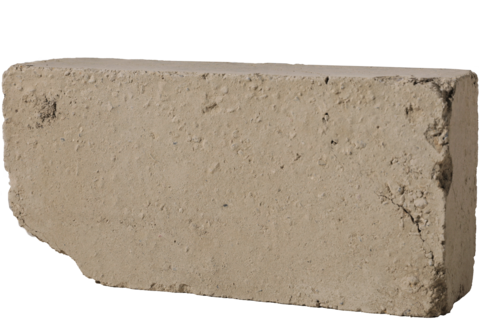Compressed Earth Block CEB - 'Brickette'
Life Cycle Transition
About the Product

Loam is a type of soil composed of sand, clay and silt. It is formed by the weathering of rock layers and is regionally available almost everywhere. Compressed Earth Blocks (CEB) are machine-pressed clay blocks. They are made of clay and, if necessary, other additives such as sand or plant fibres, pressed into moulds under high pressure (around 200 bar/ 20N per mm2) and then air-dried in a formless manner. They differ from compressed stabilised earth blocks (CSEB) in that no cement or other binding agents are added to them.
BC Materials’ CEB, called “Brickette”, is a clay block that uses 600 times less energy during production compared to traditional fired bricks by using local clay resources. The Belgian manufacturers source their clay from Brussels and the surrounding area and do not use any additives. On request, the bricks can be stabilised with 4% hydraulic lime.
CEB clay blocks regulate the indoor climate, ensure constant relative humidity and have a high heat storage capacity.
CEBs have a compressive strength of 2–4 N/mm² and are used in load-bearing and non-load-bearing walls, but must be protected from driving rain outdoors. Standard dimensions are 14x28x9cm for masonry; however, according to the manufacturer, corners and edges can break off quickly. Other dimensions and colours are available on request. The manufacturer also supplies matching mortar for its bricks.
If the mortar bond permits, the clay blocks can be dismantled and reused. Since the product is composed of purely natural materials, it can also be dismantled into its components and recycled after successful deconstruction.
Manufacturer: BC materials